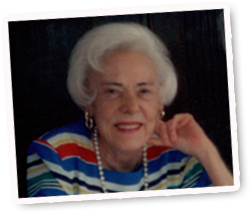- Fellowship year:2024-2025
- University: University of Wisconsin- Madison
- Dissertation Topic/Category: Africa
- Dissertation Title: Curriculum and Conscience: Ujamaa, Intellectual Activism, and Accountability at Tanzania's University
Carly Lucas' dissertation, "Curriculum and Conscience: Ujamaa, Intellectual Activism, and Accountability at Tanzania's University," studies a world of cultural and intellectual innovation when University thinkers rethought theory and pedagogy, reshaping their ideas, relationships, and actions as Tanzania's socialists. Her work prioritizes the dual role of language and translation as an instrument of both power and resistance. From the late 1960s to the early 1980s, these intellectuals transformed academic spaces into frontlines of anti-imperial struggle, critiquing both curricula and bureaucratic structures designed to uphold Western imperialism. The University of Dar es Salaam (UDSM), like universities across Africa, became a battleground where students and faculty forged new understandings of socialism and education. Their academic environment was not just a reflection of broader political movements but a site where the meaning of socialism and intellectual responsibility was contested and redefined. The people Lucas studies, especially students, took a revolutionary position, mediating between the local and the global. My work takes their role as stakeholders seriously, showing how they shaped both the structure and the intellectual culture of the University.
"Curriculum and Conscience" makes three key interventions in the historiography of African universities and socialist intellectual movements. First, it challenges static notions of the intellectual by centering the fluid, often contentious process of self-redefinition within Tanzania's socialist experiment. At UDSM, students and faculty continually reshaped their roles as intellectuals, not just within the bounds of theory but in active opposition to neocolonial structures. Second, this research reframes the structure and its political culture. At UDSM, students were pivotal in reinterpreting and contesting those ideals, positioning the University as a site of revolutionary thought. Third, Lucas' dissertation tells a new narrative of decolonization with a focus on ujamaa as a revolutionary tool in an intellectual struggle that faculty and students wielded to challenge the top-down nationalist structure that instituted it. While historians have studied ujamaa's influence on social, political, and cultural sectors, my manuscript is the first to ask not only how intellectuals interpreted African socialism but how they redefined it-and themselves-through this process.
